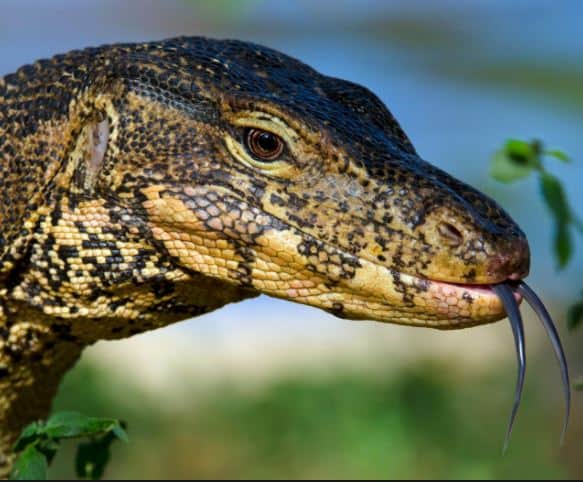TAMPA, Fla. - U.S. District Judge William F. Jung has sentenced Akbar Akram (44, Holiday) to serve a four-year term of federal probation for traffic
TAMPA, Fla. – U.S. District Judge William F. Jung has sentenced Akbar Akram (44, Holiday) to serve a four-year term of federal probation for trafficking in protected water monitor lizards, in violation of the Lacey Act. The court also ordered Akbar to serve 90 days’ home detention and complete 288 hours of community service.

Akram had pleaded guilty on January 8, 2020.
According to the plea agreement, Akram admitted to illegally importing at least 20 live, water monitor lizards from the Philippines between January and December 2016, in violation of United States law and the Convention on International Trade in Endangered Species (CITES) Treaty. To avoid detection by United States customs authorities, the lizards were placed in socks, which were sealed closed with tape, and then concealed in the back panels of audio speakers or other electronic equipment. The equipment was then shipped via commercial carriers to Akram and his associate, who resided in Massachusetts. The customs declarations accompanying the shipments identified the content as audio speakers or similar electronics. Akram further admitted that he knew the monitor lizards he received had been imported into the United States in violation of CITES and the Endangered Species Act. Upon receiving the monitor lizards, he sold some of them to customers, including customers in Colorado, Connecticut, and Massachusetts.
“Wildlife trafficking is harsh and cruel. Operation Sound of Silence revealed that baby lizards were illegally collected, inhumanely packaged, and internationally trafficked with many arriving into the United States injured, sick or dead,” said Edward Grace, Assistant Director for the U.S. Fish & Wildlife Service Office of Law Enforcement. “The U.S. Fish and Wildlife Service remains dedicated to working alongside federal and international law enforcement agencies to apprehend and bring to justice U.S. citizens who seek to profit from the exploitation of wildlife.”
Monitor lizard is the common name for lizards comprising the genus Varanus. Monitor lizard species (there are approximately 70) are characterized by elongated necks, heavy bodies, long-forked tongues, strong claws, and long tails. Monitor lizards have a vast geographical range and are native to Africa, Asia, and Oceania. Water monitor lizards are semi-aquatic monitor lizards endemic to South and Southeastern Asia. As their name suggests, they are water dependent and easily swim long distances. This ability has allowed them to inhabit many remote islands. Some species of water monitor lizard are common and abundant in the pet trade, while others are extremely rare and are found only on specific islands. In addition to suffering increasing habitat loss due to rainforest destruction, water monitor lizards are often illegally collected from the wild and killed for various uses. They are also targeted for their popularity in the international exotic pet trade. Exotic pet traders seek water monitor lizards due to their attractive patterns, unique colors, intelligence, and rarity. The yellow-headed water monitor (Varanus cumingi), the white-headed water monitor (Varanus nuchalis), and the marbled water monitor (Varanus marmoratus), are species of large monitor lizards endemic to the Philippines.
This case is part of Operation Sound of Silence, an ongoing effort by the Department of the Interior’s Fish and Wildlife Service Office of Law Enforcement, in coordination with the Department of Justice, to bring to justice those involved in the illegal taking and trafficking in protected species, including water monitor lizards. It was prosecuted by Assistant United States Attorney Colin P. McDonell and Environmental Crimes Section Trial Attorneys Gary N. Donner and Erica H. Pencak.
